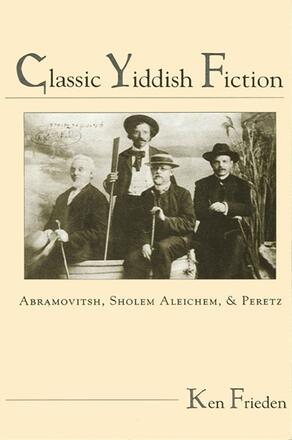
Classic Yiddish Fiction
Abramovitsh, Sholem Aleichem, and Peretz
Alternative formats available from:
Revisits fiction by the three major Yiddish authors who wrote between 1864 and 1916, exploring their literary and social worlds.
Description
Yiddish literature, despite its remarkable achievements during an era bounded by Russian reforms in the 1860s and the First World War, has never before been surveyed by a scholarly monograph in English. Classic Yiddish Fiction provides an overview and interprets the Yiddish fiction of S. Y. Abramovitsh, Sholem Aleichem, and I. L. Peretz. While analyzing their works, Frieden situates these three authors in their literary world and in relation to their cultural contexts.
Two or three generations ago, Yiddish was the primary language of Jews in Europe and America. Today, following the Nazi genocide and half a century of vigorous assimilation, Yiddish is sinking into oblivion. By providing a bridge to the lost continent of Yiddish literature, Frieden returns to those European traditions. This journey back to Ashkenazic origins also encompasses broader horizons, since the development of Yiddish culture in Europe and America parallels the history of other ethnic traditions.
Ken Frieden holds the B.G. Rudolph Chair in Judaic Studies at Syracuse University, where he is a professor in the departments of English and Textual Studies, Languages, Literatures, and Linguistics, and Religion. He has also written Freud's Dream of Interpretation, also published by SUNY Press, and Genius and Monologue.
Reviews
"The dominance of parody is Ken Frieden's point of departure for the clear, reliable introduction we've been waiting for to the remarkable trio of writers who brought Yiddish into the mainstream of modern European literatures." — Ruth Wisse, Harvard University
"Clearly written, jargon free, this book provides both an overview and close reading of the three masters of Yiddish literature. Drawing upon historical, political, social and religious events, Frieden provides the background that enriches his literary analysis." —Evelyn Avery, Towson State University